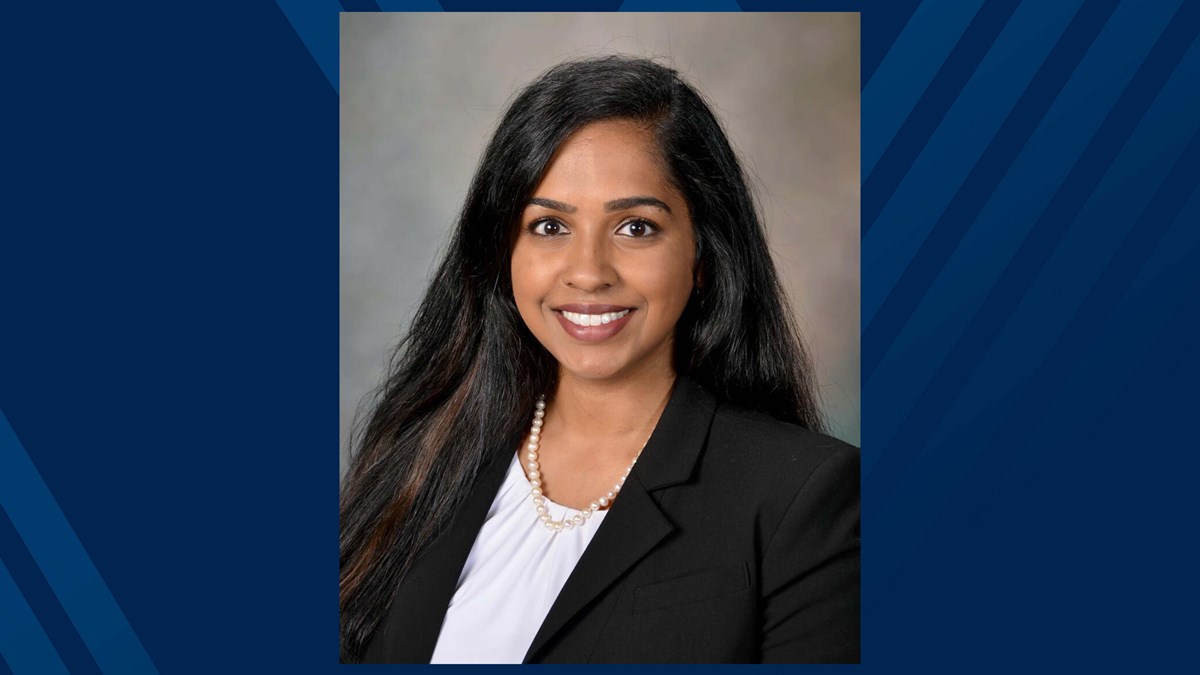Chatura Alur, M.D., MPH

“The community-based approach to medical education at the Eastern Campus allowed me to connect with my patients on a more personal level, emphasizing the ‘care’ in healthcare.”
Chatura Alur, M.D., MPH, said her experiences as a resident and fellow at the West Virginia University School of Medicine’s Eastern Campus have helped her become a more thoughtful and better-prepared family medicine physician.
“The community-based approach to medical education at the Eastern Campus allowed me to connect with my patients on a more personal level, emphasizing the ‘care’ in healthcare,” Dr. Alur said. “The extra responsibilities that come along with that approach also helped me become a more well-rounded physician and really gave me the tools and knowledge to get me where I am today.”
Alur currently serves as core faculty for the Mayo Clinic Health System Family Medicine Residency Program in Mankato, Minnesota. She said she credits her experiences in the Rural Family Medicine Residency and Maternal Child Health Fellowship programs at the Eastern Campus for preparing her for a career in community-based family medicine.
Alur said both of the Eastern Campus programs she was enrolled in ingrained community engagement into all of its residents and fellows, helping them become more thoughtful and caring physicians. She said this made them more aware of the boundaries that exist within medicine, such as food insecurity and geographical and financial limitations for patients.
“At Eastern, we got to know patients as people first, instead of the other way around,” Alur explained. “When you get the opportunity to connect with people in that way, and understand what barriers exist for them and what all you can do within those barriers for them as their provider, it makes that care much more valuable for everyone involved.”
Alur said that this in turn helped her build stronger relationships with her patients, which were then reinforced by the attitudes of patients themselves towards residents and fellows at the Eastern Campus. She said that the Eastern Panhandle community was very welcoming to all learners. With the programs so ingrained in the community, patients know they will likely be seen by residents and fellows and they embrace it.
“Being in a position where we didn’t receive pushback from patients as learners, and instead had their support, was really important to building both my skills as a physician and those crucial relationships with patients,” Alur said.
According to Alur, the community-based approach to medicine at the Eastern Campus also presents a unique opportunity for residents and fellows to be exposed to a wide variety of medical situations. She said factors such as a smaller number of available specialists in the area, or patients who are unable to travel to Morgantown or other areas for additional care, results in residents and fellows seeing a large variety of medical cases.
“We’re set up for an incredible learning experience at Eastern, because we do so much high-risk medical care across the entire field,” Alur said. “I believe this helps make us better physicians. Being in a smaller area with less resources makes it so we are truly equipped to go anywhere and accomplish anything regardless of the resources that are available to us.”
Alur said that the Rural Family Medicine Residency and Maternal Child Health Fellowship programs also helped her realize her goals as a physician, which include making a lasting effect on the health of an entire community.
“When I’m old and retired, I want to be able to look back and say that I made enough of a positive impact in my local community,” she said. “This goes back to inflicting change with people and their families directly, which is exactly what I learned to do at Eastern and what I am working towards doing now in Minnesota.”